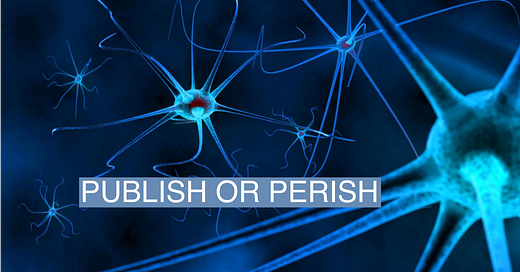A third of scientific papers may be fraudulent
Around a third of studies published in neuroscience journals, and about 24% in medical journals, are “made up or plagiarized,” according to a new paper.
THE NEWS
The research, referred to as a preprint — meaning it has not yet been peer-reviewed — looked at 5,000 published papers, as first reported by Science.
Using a simple, automated detection system the researchers looked for two telltale signs: Whether an author was registered with a personal, rather than institutional, email address, and if the author listed their affiliation as a hospital. The papers flagged as potentially fake were then checked by humans. About 1,500 of the papers were likely fraudulent, the researchers concluded.
KNOW MORE
Academic careers are “publish or perish”: If scientists don’t publish lots of widely cited studies, they won’t progress. They’re therefore incentivized to get their names on as many published papers as possible, and to make sure those studies get citations, not to find true facts.
The paper mill industry has arisen as a result of that incentive. But it’s just one way in which academics can boost their record. Some scientists repeatedly cite their own earlier papers, even if they have no relevance. There are also “citation rings” of scientists who all agree to cite each other’s papers, again regardless of relevance, and “undeserved authorship” in which scientists get their names on papers they didn’t write, either by paying for it or by mutual agreement. All these practices artificially boost the scientists’ citation statistics.
TOM'S VIEW
Everyone in science knows about these problems. But surprisingly few people do anything about it.
The microbiologist Elisabeth Bik has an extraordinary ability to spot duplicated or faked images in scientific journals: She has spotted hundreds over the years. But she told Nature that even five years after she’d reported the fakes to the journals, most of them had not been dealt with.
The Oxford psychologist Dorothy Bishop says this matches her own experience: “If one points out academic malpractice to publishers or institutions, there is often no reply.”
There are plenty of other issues with scientific research and publishing. Journals take scientists’ work for free or even charge to publish it, then charge them again for access.
Editors at one journal walked out recently over “unethical” publishing fees. And the demand for “positive” results incentivizes scientists to hack the data up until they find something. Those are deep systemic problems within science.
But outright fraud, you’d think, should be easy to fix if detected. And yet the scientific community often ignores it, undermining the entirety of science: If a large percentage of studies are fake, how can we trust the progress science does make?
Greater transparency, including full publication of data and code as standard for all papers, would be a start, but ultimately the incentive structure of science has to change.






When all is competitive from school onwards...and some getting 'tick marks' and 'stars' for work done and the praising of John doing better than Paul often being the case...titters all round the class at the expense of the latter, then people later on, still having to compete in their arena and to avoid failure and embarrassment, on occasion feeling sympathy for each other, or maybe just a 'you scratch mine and I'll scratch yours' thing, is an inevitability, combined with the fact that some scholars have bought their PHd's or whatever, these setups keeps 'em all on their little toes to ensure their 'success' and an income. Divide, Rule and no ethics. Sad!